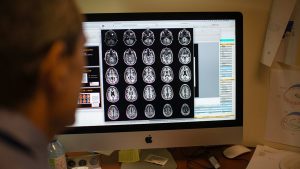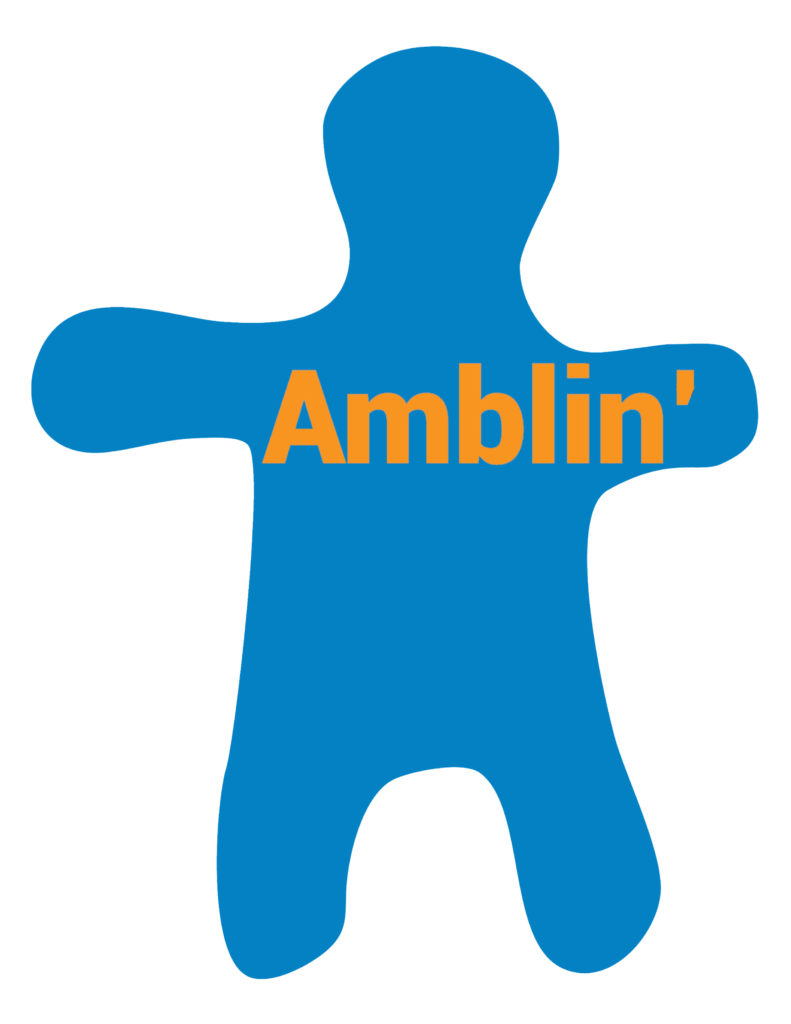Those living with Alzheimer’s disease, their family caregivers, and the advocacy community express relief, happiness, and optimism regarding the first new drug
On June 6, the Food and Drug Administration granted approval for a new medication, aducanumab (marketed as Aduhelm). This is the first drug ever approved that is designed to modify the disease. Prior FDA-approved pharmacological treatments were designed to ease symptoms. This drug is designed to alter the course of the disease by slowing the deterioration that occurs in the brain.
Those living with Alzheimer’s disease, their family caregivers, and the advocacy community express relief, happiness, and optimism regarding the first new drug to treat Alzheimer’s disease since 2003. Harry Johns, president and chief executive of the Alzheimer’s Association, described the FDA approval as “a victory for people living with Alzheimer’s and their families.”
Jeff Borghoff, a New Jersey resident who has lived with younger-onset AD for five years and who participated in the clinical trials, told the Washington Post, “This is epic news. Now, I may have time to watch my kids get married. My wife said, ‘I have more time with you now.’”
Marc Archambault was one of the first patients to receive Aduhelm outside of the clinical trials. Just before he got his first infusion at the Butler Hospital in Providence, R.I., he told the reporter, “The thought that the last stage [of Alzheimer’s] may now be far away for me, or even that I might stay as I am, is incredible.”
The manufacturer, Biogen, reports that they are working with four sites in Alaska to provide the treatment: Peak Neurology, Alaska Neurology Center, Denali Health Care Specialists and Corvus Neurology.
The elation among AD patients and their families hasn’t been widely matched by the scientific community, however. In the month following the FDA’s approval, most of the media coverage has centered on criticism of the FDA’s decision. Why is that? The answer rests in part with understanding the nature of the FDA approval, and the process by which it arrived at approval.
Accelerated Approval, not Full Approval
The FDA explicitly acknowledged uncertainty about the effectiveness of Aduhelm. For that reason, it did not grant full approval. Instead, the FDA approved the drug under the “accelerated approval” standards. Biogen was directed to conduct a post-approval study to confirm that the drug demonstrably slows cognitive deterioration. This post-approval study will last nine years, and if it doesn’t prove clinical benefit, the FDA’s accelerated approval could be withdrawn.
Dr. Patrizia Cavazzoni, Director of the FDA Center for Drug Evaluation and Research, provided a post on the FDA website explaining the agency’s decision. She explained that in the two Phase 3 trials conducted with Aduhelm, the medication consistently reduced the level of amyloid plaques in the brain.
FDA is persuaded that it is reasonably likely that this reduction will result in clinical benefit.
She also explained that the FDA’s Accelerated Approval Program was established to allow for earlier approval of drugs that treat serious conditions and that fill an unmet medical need. Approval is based on an intermediate measure – here a biomarker that is thought to predict clinical benefit but is not itself a measure of clinical benefit. In this instance, it is the declining presence of amyloid-beta in PET scans and cerebrospinal fluids in the Phase 3 trial participants. It’s not a measure of clinical benefit by itself, but rather a predictor.
That uncertainty of demonstrated clinical benefit is the reason why this drug, approved under the Accelerated Approval Program, will be subjected to a Phase 4 confirmatory trial. If that 9-year study doesn’t verify the predicted benefit, the FDA could remove the drug from the market.
Dr. Cavazzoni noted the urgent need for Alzheimer’s treatment for the more than 6 million Americans living with the disease today as an important factor in the FDA decision.
Criticism from the FDA’s Advisory Committee
Aduhelm was approved even though no members of the FDA’s 11-person advisory panel, the Peripheral and Central Nervous System Drugs Advisory Committee, considered the drug ready for formal approval. They found that the evidence did not convincingly show that Aduhelm could slow cognitive decline in people in the early stages of the disease (the trial population) and that the drug could cause potentially serious side effects of brain swelling and brain bleeding.
The advisory panel was not consulted about the accelerated approval. In its aftermath, Dr. Aaron Kesselheim (professor of medicine at Harvard Medical School and Brigham and Women’s Hospital), Dr. Joel Perlmutter (a neurologist at Washington) University School of Medicine in St. Louis), and Dr. David Knopman (clinical neurologist at the Mayor Clinic) – all members of the advisory committee, resigned their positions on the committee.
Cautious Clinicians
The Alzheimer’s Association convened a forum on June 14 to answer questions about the use of Aduhelm. Dr. Stephen Salloway, director of neurology and the memory and Aging Program and Butler Hospital in Providence, R.I. emphasized that the use of Aduhelm should be limited to certain patients: those in early stages whose brains contain high levels of amyloid. He said doctors should use the drug only for patients whose statuses match those in the clinical trials. “There’s no evidence that it could be beneficial for any other stage of Alzheimer’s,” he said.
The panelists suggested that, at least at the outset, relatively few doctors and clinics would have the ability to adequately diagnose, screen, and treat patients.
The panelists reportedly devoted considerable discussion to the risks associated with Aduhelm: brain swelling and hemorrhages. These occurred in about 40% of those who received the high dose in the two large clinical trials.
It will be important to have comprehensive discussions with patients and families about “how to weigh the inconvenience and cost and risk against the possible benefit, according to Dr. Aisen. “Managing expectations is a huge challenge here. Our expectation is a modest slowing of the rate of decline. It’s impossible to determine on an individual patient level whether someone is benefiting or not.”
There are, right now, 94 separate clinical trials in the process of working on disease-modifying treatments for Alzheimer’s disease. Some are focused on the amyloid theory underpinning Aduhelm. Others are focused on tau; still others on inflammation. The cause of Alzheimer’s remains an elusive scientific fact, and the research continues.
For now, there is the promise of Aduhelm for those with access. More on that in another article, as the bigger picture clarifies. ![]()
Sources:
- FDA’s Decision to Approve New Treatment for Alzheimer’s Disease
— FDA.gov June 7, 2021 - FDA approves first drug intended to slow cognitive decline caused by Alzheimer’s disease
— washingtonpost.com July 16, 2021 - The controversial approval of an Alzheimer’s drug reignites the battle over the underlying cause of the disease
— washingtonpost.com July 16, 2021 - Three F.D.A. Advisers Resign Over Agency’s Approval of Alzheimer’s Drug
— nytimes.com June 10, 2021 - Many Alzheimer’s Experts Say Use of Aduhelm Should Be Sharply Limited
—nytimes.com June 21, 2021






 Make a Payment
Make a Payment



